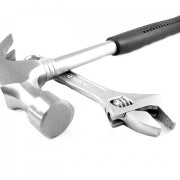A high-speed reinvention for auto suppliers
The end of automotive production as we know it in Australia will have far-reaching ramifications for the Australian supply chain.
Around 150 companies sit within the overall supplier group, and they all face significant challenges as a result of the recent decisions regarding closures.
The companies typically fall into one of three categories.
There is a small group which have worked diligently at diversifying their businesses over the years, and/or worked to enter export markets to support declining domestic volumes. Many companies in this group will be sustainable into the future, albeit with reduced workforce numbers.
The second category is companies which may be able to respond quickly enough to develop a path to survival. This may be assisted by the rationalisation that the supply chain has needed for some time, with companies finding alliances or opportunities to merge together to create the scale and capability that will be required to become viable. It will also include those companies which can adequately restructure their business to diversify into new markets, or create viable export opportunities.
The final category is those for whom this decision unfortunately means their businesses are no longer sustainable. These companies will be grappling with myriad issues, including directors’ legal obligations, contractual obligations to their customers and employee entitlements, just to name a few.
Whether this will be a hard or soft landing overall will be dictated by two key issues.
First is the response of the individual companies. Bleak as the news has been around automotive manufacturing in Australia over recent years, component suppliers need to dig deep to see whether there are diversification opportunities or alternative business models that will drive sustainability in their operations.
Significantly, this is consistent with the culture that has been established over recent years.
Suppliers have had to reinvent themselves constantly, working out how to make money (or at least break even) in a climate of ever-shrinking volumes and decreasing local content. This resourcefulness now needs to be pitched fully towards survival by another means.
The other key variable is the design of the restructuring package that is being developed by state and federal governments. This needs to be as responsive as possible to the varied needs of the supply chain, and assist in the transition of as many employees into new work as possible.
It is also critical that companies act early to keep as many options open as possible. Ford’s decision to seek 300 redundancies from its manufacturing operations last week shows that all companies must ensure their business structure reflects the nature of their market at any given point in time. Suppliers need to understand the urgency associated with their situation, and understand that even with vehicle manufacturing potentially extending through to 2017, they need to consider which path they will take with their own businesses with much greater immediacy.
The future of Australian manufacturing has for some time been at the upper end of the value chain. Here products are more complex, with greater features and functionality, and the manufacturing process can differentiate itself by the maintenance of a technology premium. This type of manufacturing is more sustainable in a high wage environment, and relies on greater levels of automation and relatively fewer jobs.
The challenge for Australia’s automotive supply chain is to see how many companies can adjust their business models to succeed in this environment, and how an industry restructuring package best supports a positive outcome.
Damon Cantwell is Deloitte Australia’s Manufacturing Partner.
















